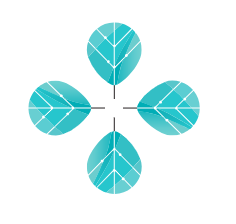It’s one of the first things you learn as a child: your behaviors and decisions impact not only your own life, but the lives of those around you.
But while we tend to be pretty good at assessing the strengths and weaknesses of others, we’re not so good when it comes to doing the same for ourselves. Ask yourself: are you truly honest about your flaws, shortcomings and motives?
If you answered no, you’re not alone. As one psychologist puts it, “On a good day, 80 percent of us are lying to ourselves about whether we’re lying to ourselves.”
And there’s something about the always-on modern workplace — and the constant notifications coming from our phones and screens — that accentuates the challenge. In this fast-paced, demanding environment, Descartes’ dictum “I think, therefore I am” — perhaps the most famous statement on self-awareness in human history — becomes more complicated. How can we think and be and succeed when so much noise, static and distraction?
But there’s good news: for all the obstacles we face, research shows we’re able to build self-awareness — and by doing so improve our performance, well-being and resilience. As the research shows, it’s all about asking yourself the right questions.
Subhed: Welcome to the Thrive Guide to Self-Awareness
Thrive Global is a behavior change platform focused on lowering stress and increasing well-being and productivity. The company, founded by Arianna Huffington, creates lasting change in people’s lives by giving them sustainable, science-backed solutions to enhance their performance and overall well-being.
This Thrive Guide will help you connect with yourself and your values in ways that boost your performance and resilience. Our Thrive Global Microsteps are simple, science-backed changes you can start incorporating into your life today. They’ll not only help you tap into a sense of purpose — they’ll help you shift your attitude from viewing purpose as an add-on to seeing it as the foundation of everything you do.
We’ll introduce you to the New Role Models who are living proof that looking inward can yield big external benefits. For example, TK
In our Tech to Thrive section, we’ve curated the best technology that can help you look inside yourself and reap the benefits of increased self-awareness.
Knowing who you are and why you do what you do is essential to inspiring others and creating a healthy, high-performing culture. Our Managerial Take-aways section offers advice for managers committed to fostering a culture where people feel comfortable being themselves and building careers that include both professional development and personal exploration.
By the end of this guide, you’ll have the tools and practical advice you need to make self-awareness an essential part of your success — and to help others embrace it as well.
Subhed: The Science Linking Self-Awareness and Success
We all face challenges at work. But not all challenges are created equal. Some challenges are meaningful, connected to a sense of something larger and important. Others aren’t. If you’ve ever wasted time on busy work, or worked at a rudderless organization, you know what that’s like.
When you’re putting in extra hours, overhauling a complicated system, or trying to reach an ambitious goal, there has to be some incentive. Chances are, if you feel a sense of purpose and connection to what you’re doing, you’ll deliver your best performance and go the extra mile.
But if you feel disconnected and can’t understand the “why” of what you’re doing, it’s deflating.
At first, this might seem out of your control. You might ask, Isn’t it my boss’s job to tell me why I’m doing what I’m doing? Shouldn’t my organization provide the vision and the purpose?
In reality, you have more control over this than you realize. That’s why one of the fundamental benefits of cultivating self-awareness is learning to know your own “why.”
The philosopher Friedrich Nietzsche said, “He who has a why can endure any how.” And in various ways, research has affirmed this wisdom.
“Those leaders with strong self-knowledge — who have a clear understanding of their skills and shortcomings, their frustrations, and their core principles — are more likely to sustain those needed reserves of resilience to thrive through adversity and change,” wrote author Ron Carucci in Harvard Business Review, citing a study by the American Society of Business and Behavioral Sciences.
But of course self-awareness and its benefits aren’t just for leaders. Whatever position you hold in your organization, wherever you are in your career, you can benefit from knowing yourself and connecting that knowledge to a larger purpose.
The performance-enhancing effects of self-awareness are especially evident during difficult times. As author Margie Warrell puts it, “If you’ve ever faced a significant crisis in your life you’ll have experienced the power of purpose to tap reserves of energy, determination and courage you likely didn’t know you had.”
That’s because when you’re self-aware, you’re able to address crises and challenges much more effectively — by responding to them, as opposed to simply reacting.
“When we are open to difficult emotions we are able to generate responses that our values align with,” according to Susan David, a psychologist and author of Emotional Agility: Get Unstuck, Embrace Change, and Thrive in Work and Life. For David, the path to self-awareness and its benefits begins with this openness with our own emotions.
Now, maybe you’ve been taught that emotions have no place at work, or are likely to take you off course you as you strive to succeed. Science increasingly shows that this just isn’t true.
As David points out, understanding our own emotions is exactly what allows us to take meaningful action.
“When we label our emotions accurately we are more able to discern the precise cause of our feelings,” David says in her TED Talk. “And what scientists call the readiness potential in our brain is activated allowing us to take concrete steps. But not just any steps, but the right steps for us. Because our emotions are data. Our emotions contain flashing lights to things that we care about.”
You’ve probably seen this in your own life and career. Have you ever deceived yourself about your own emotions? Have you tried, for instance, to convince yourself you don’t care about something you really care about deeply? While this self-deception might feel good for a while, it ultimately hurts — rather than helps — your ability to perform at your best and navigate challenges.
In one particularly powerful moment in her TED Talk, David alludes to the immense cost of a lack of self-awareness — not only for individuals but for communities and even entire countries. “I grew up in the white suburbs of apartheid South Africa,” she says, “a country and community committed to not seeing.”
When we do cultivate self-awareness, we are exercising one of the fundamental qualities of our humanity. It’s what distinguishes us from machines and animals.
Being self-aware is more than merely being conscious, writes Ferris Jabr in Scientific American. “To be conscious is to think; to be self-aware is to realize that you are a thinking being and to think about your thoughts.” Neuroscientists have explained that humans are more self-aware than other animals due to our large cerebral cortex. And the immense power and potential of our brains is what allows us to commit to building our self-awareness, starting now.
So let’s put these insights into action.


